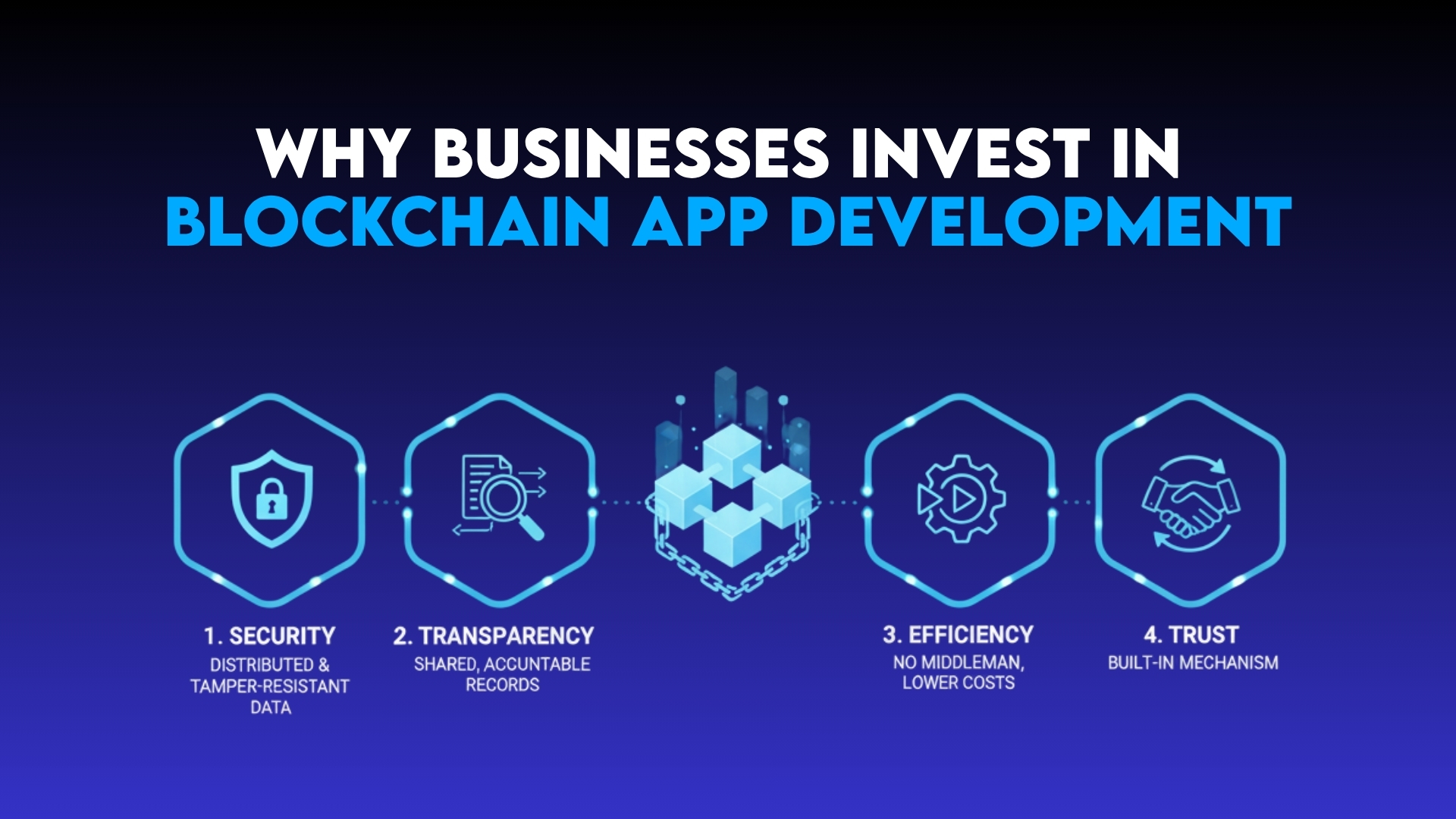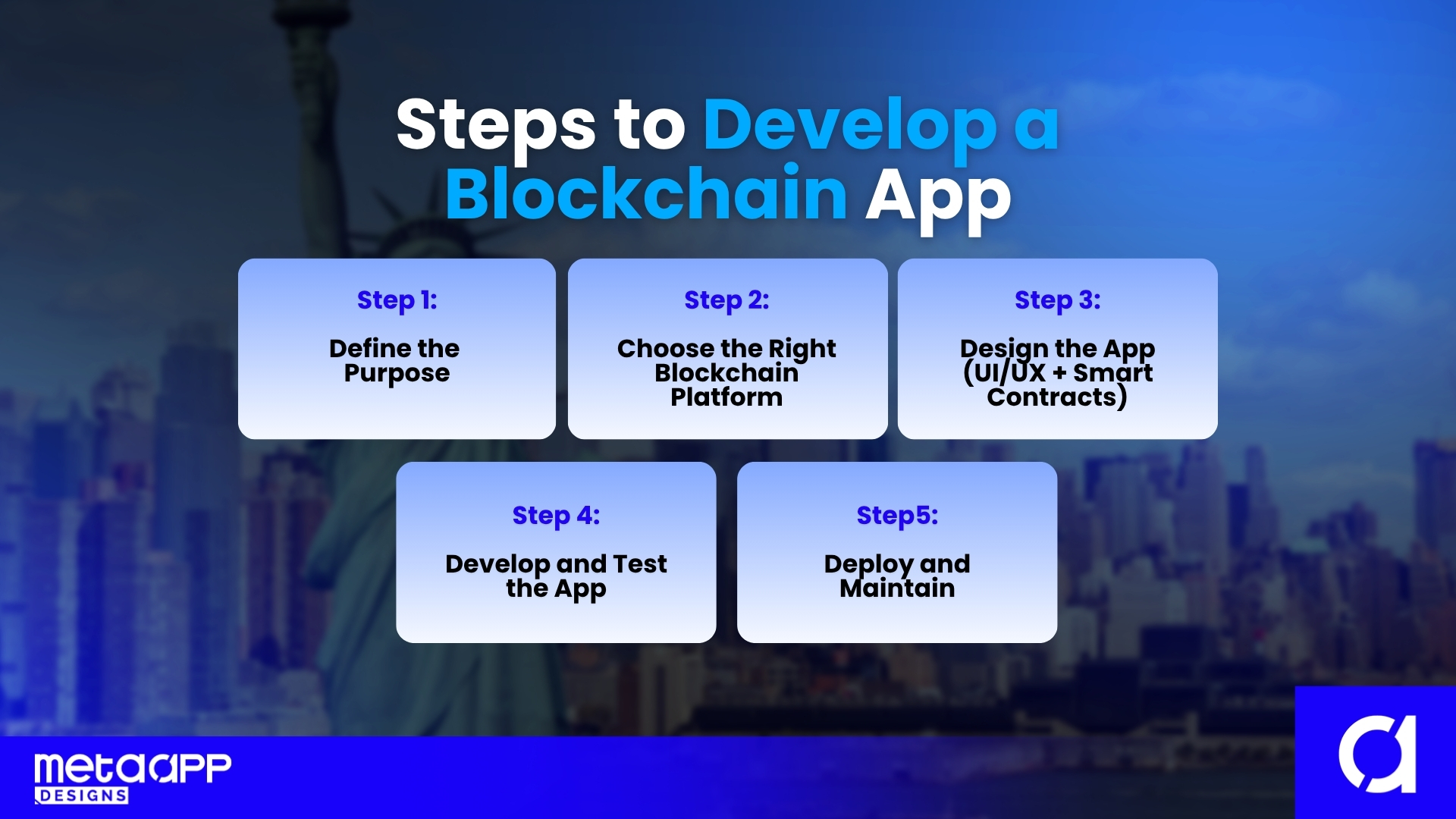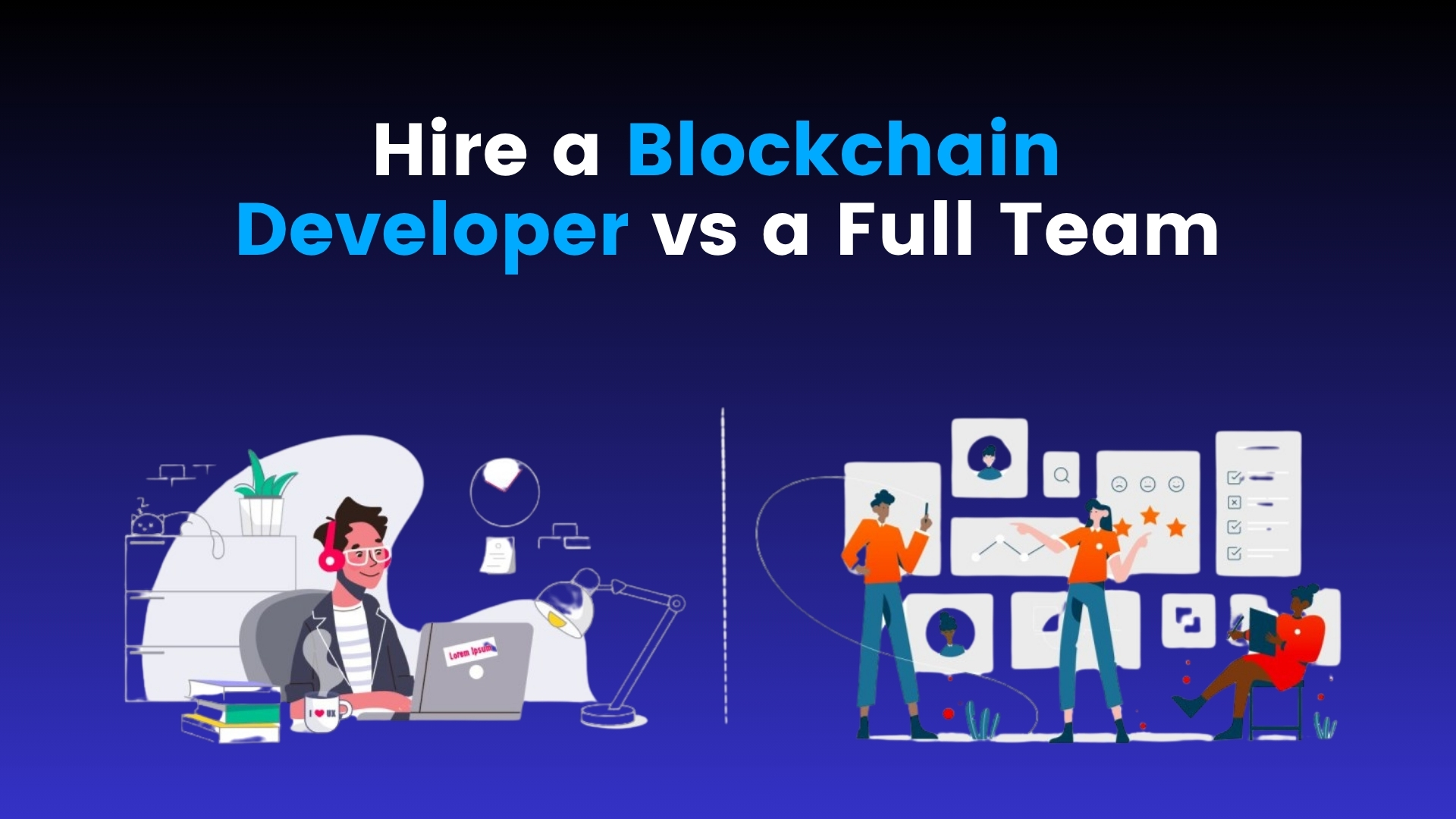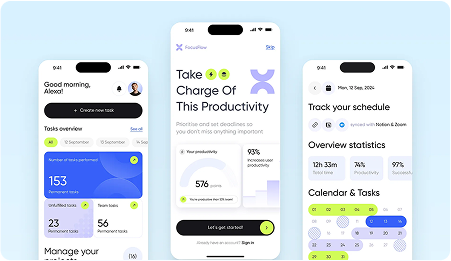
How to Develop a Blockchain App Using Modern Tools and Platforms
Remember when kids traded Pokémon cards like they were priceless treasures? Each swap carried a thrill, and the collection felt untouchable. Now imagine that same excitement, but digital, secure, and backed by technology that reshapes entire industries. That’s the promise of blockchain apps.
Thank you for reading this post, don't forget to subscribe!At its core, a blockchain app is simply a digital tool built on trust. It keeps records open, shared, and impossible to tamper with. No middleman, no hidden hands, just transparency.
But here’s the real story: businesses everywhere are rushing to explore blockchain, and the results are nothing short of game-changing. From finance to healthcare, the buzz is impossible to ignore.
In the sections ahead, we’ll unpack the why, the how, and the tools that make it happen. By the end, you’ll see why blockchain app development isn’t just a tech trend, it’s shaping the future of business.
Understanding Blockchain (The Foundation Story)
Table Of Content
Imagine a notebook that everyone in your class holds. Where every time someone writes a new entry. Then, all notebooks update at once. Once written, no one can erase it. That’s what blockchain is. It’s public, shared, and permanent.
In technical terms, a blockchain is a distributed ledger. Basicaly, a chain of blocks containing data, cryptographic hashes, and timestamps. Each block links to the previous one. So, changing history becomes nearly impossible.
“Trust is the currency of the future. Blockchain just happens to be the wallet.” It sounds poetic, but there’s truth in it: blockchain aims to embed trust into digital systems.
What Does a Blockchain Developer Do?
A blockchain developer builds the plumbing and rooms of that notebook. They design the rules, write the logic, and make sure people can interact with it safely. In simpler terms:
- They design core protocols and network systems (for big, foundational work)
- They build dApps (decentralized apps) and smart contracts (self-executing code).
- They test security, fix bugs, and maintain the system against evolving threats.
Sometimes, one person plays both roles (in smaller projects). Sometimes, you need a team.
Why Businesses Invest in Blockchain App Development

Companies aren’t chasing buzzwords, there are real reasons:
- Security: Since data is distributed and tamper-resistant, you reduce single points of failure.
- Transparency: Everyone sees the same records, which builds accountability.
- Efficiency: No middleman means fewer delays and lower cost.
- Trust: In business settings, trust is expensive. Blockchain offers a built-in trust mechanism.
Transitioning from old systems to blockchain is not trivial. But many are doing it anyway because the payoff is huge.
Why Businesses are Racing Towards Blockchain Apps
Numbers speak louder than hype. In 2024, the global blockchain technology market was worth about USD 31.28 billion, and it’s forecast to explode to over USD 1,431.5 billion by 2030. That’s a compound annual growth rate (CAGR) of ~90 % . Meanwhile, in healthcare alone, blockchain adoption is growing at ~63 % CAGR toward 2030
Because of such growth, businesses across sectors can’t afford to sit still.
Why the Rush? Benefits, Explained Simply
| Benefit | Metaphor | What It Means for Business |
| Transparency | A glass bakery | Everyone can see every transaction or change |
| Security | A vault that needs multiple keys | Tampering or hacking becomes much harder |
| Efficiency | Skipping middlemen | Faster, cheaper processes |
| Custom vs Off-the-Shelf | Tailor-made suit vs store shirt | Custom blockchain development fits your business exactly |
Because blockchain is inherently distributed, transparent, and immutable, it reduces friction in operations. Many businesses see it as a way to build trust into their systems, not just bolt it on later.
Steps to Develop a Blockchain App

So how do you actually build a blockchain app? The process might look technical. But when broken down step by step, it’s easier to follow. Think of it like building a house. Basically, you start with purpose. Then, choose the right land and design it. Also, you keep it maintained.
Step 1: Define the Purpose
Every blockchain app starts with one big question: Why do you need it?
- Is it for tracking goods in a supply chain?
- Do you want a crypto wallet for digital payments?
- Or maybe a decentralized marketplace for buyers and sellers?
Without clarity? Then, the project quickly loses direction. Businesses like Walmart already proved this point. They use blockchain to trace food products from farm to shelf. It cuts delays. Also, it spots contamination faster and boosts consumer trust.
So, now, your purpose is crystal clear. Hence, the next step is choosing the right platform.
Step 2: Choose the Right Blockchain Platform
Choosing a blockchain platform is like picking the right school for your child. Each one has strengths:
- Ethereum: Popular, flexible, but sometimes slow and costly.
- Solana: Extremely fast, but newer and still stabilizing.
- Hyperledger: Great for private business networks.
- Polygon: Designed for scaling Ethereum apps affordably.
A certified blockchain developer can guide you. They help match your business needs with the right platform for custom blockchain development.
Transition: Once the platform is set, design comes next.
Step 3: Design the App (UI/UX + Smart Contracts)
Looks matter. Even the smartest blockchain app will fail if it’s ugly or confusing. A clean, simple interface makes adoption easier.
Then there are smart contracts—the brains of the app. Think of them like vending machines.
put in the right amount, push a button, and it delivers without human help. These contracts handle rules, payments, and conditions automatically.
Transition: But design is only half the story. Next comes development and testing.
Step 4: Develop and Test the App
Here’s where blockchain developers get busy. They write secure code, connect the front end with the blockchain network, and integrate features.
Testing is critical. Imagine launching a rocket. But without checking its fuel. Stupidity at it’s best! Similarly, a blockchain app without testing? It can crash and lose data. Or expose security flaws. Hence, devs run multiple rounds of audits, bug fixes, and simulations. All to make sure it’s solid.
Step 5: Deploy and Maintain
Deployment means uploading the app to its chosen blockchain. And making it accessible for users. But the journey doesn’t end there. Like any living system, a blockchain app needs care. Developers fix bugs, improve performance, and scale as the business grows.
As one expert put it: “Blockchain isn’t a one-time build. It’s a living organism that evolves with your business.”
These steps show the journey from an idea to a functioning blockchain app. With the right blockchain app development services? Businesses can turn concepts into reality. But without drowning in technical details.
Modern Tools & Platforms for Blockchain Development

So, you understand the steps? Now, the next big question is. What tools do developers actually use? Just like builders need hammers and drills. Blockchain devs rely on specialized platforms and toolkits. These make development smoother and faster. Also, more reliable.
Popular Developer Tools
- Truffle: A framework for building and testing smart contracts. It helps developers avoid common coding mistakes.
- Hardhat: Another toolkit for writing, debugging, and deploying smart contracts. It’s known for flexibility.
- Ganache: A local blockchain simulator where developers can test apps safely before launch.
- MetaMask: A wallet and gateway that allows users to connect easily to blockchain apps.
These tools make life easier and cut down mistakes. Instead of starting from zero, developers can use them and spend more time creating cool features.
Cloud Platforms Supporting Blockchain
Big players also support blockchain integration:
- AWS (Amazon Web Services) offers blockchain templates to speed up setup.
- Microsoft Azure provides frameworks for building enterprise-grade blockchain apps.
- IBM Blockchain Platform supports businesses that want secure, scalable solutions.
By using these services, companies cut costs and reduce development time.
Adoption Insights
Ethereum still leads the pack in app adoption, though newer networks like Solana are gaining momentum. Choosing the right fit often depends on project goals.
That’s why many companies choose to hire a blockchain developer. Or they use blockchain app development services. These pros already know the tools and platforms. So, businesses don’t have to start from scratch.
Do You Need a Certified Blockchain Developer?
At this point, many businesses wonder: Should we hire just any developer? Or look for a certified blockchain developer? The difference often comes down to trust and credibility.
1. What Certification Really Means
A certified blockchain developer knows their stuff. Certification proves they can build and run, . And they can keep apps safe. Also, they’re up-to-date with the latest tools. For businesses, hiring them means less risk. But more confidence that the project will work smoothly.
2. Why Certification Matters for Businesses
Blockchain projects often deal with sensitive data and financial transactions. One mistake can be costly. By hiring certified professionals, companies know the developer has:
- Verified technical knowledge
- Experience working on real projects
- Awareness of best practices in security and compliance
This is why certifications act like a seal of quality.
3. The Bigger Picture
LinkedIn says blockchain development is one of the top 10 fastest-growing skills right now. Lots of companies want it. However, there aren’t enough experts. That’s why many businesses hire blockchain app development services. Here, skilled teams handle everything from start to finish.
Still, certification isn’t the only decision. The next step is knowing whether to hire one developer or a full development team.
When to Hire a Blockchain Developer vs a Full Team

After assessing skills, the next decision is about scale. Should you hire a single blockchain developer? Or bring in a full blockchain app development service? Good question! The right choice depends on your project size, budget, and timeline.
1. Hiring a Solo Blockchain Developer
A single certified blockchain developer works best for smaller projects or pilots. So, isyour company testing blockchain for the first time? Or already has a team and just needs one specialist? Then, this approach is often more cost-effective. It’s like hiring a personal chef. Basically, the service is tailored, efficient, and focused, but the menu,meaning the project scope, is limited.
2. Choosing a Full Blockchain App Development Service
Got bigger or trickier projects? Then, you’ll need a full team. That means designers, developers, testers, and managers all working together. So, nothing gets missed. It’s like going to a fancy restaurant. There everything runs smoothly, looks great, and is ready to use. But it does cost a little more.
3. Where to Find the Right Talent
Businesses can hire a single freelance blockchain developer. Or they can go with a full-service agency like Meta App Designs. Agencies handle everything. For instance, from designing and building the app to testing and keeping it running smoothly. Hence, saving you time and headaches.
Transition: Once you decide on hiring, the next critical consideration is cost and potential return on investment.
Cost & ROI of Blockchain App Development
Cost is usually the first thing businesses worry about. Building a blockchain app can start around $30,000 for small projects and go over $300,000 for big, complex ones. Things like smart contracts, extra features, and keeping the app running all add to the price.
Even so, the payoff can be worth it. Blockchain apps help cut mistakes, keep data safe, and make processes faster. In supply chains, they stop fraud and prevent delays. In finance, they speed up transactions and save money.
Going for custom blockchain development or hiring a certified blockchain developer makes sure your app works smoothly from day one. It’s not cheap, but like buying a smart investment, blockchain can actually save or make your business money.
Future of Blockchain App Development
The future of blockchain app development is full of opportunities. Trends such as Web3, AI integration, and network interoperability are shaping smarter, faster, and more secure applications.
Custom blockchain development and certified developers ensure apps stay reliable and evolve with business needs. As one expert said, “The best time to plant a blockchain app was yesterday. The second best is today.”
Blockchain isn’t just a trend, it’s the blueprint for tomorrow’s business. Companies that invest wisely today will lead in the digital future.
Frequently Asked Questions
Costs range from $30,000 for simple apps to over $300,000 for enterprise solutions, depending on complexity, platform, and features.
Look for skills in smart contracts, dApps, blockchain platforms, and certifications. You can hire a solo developer or use blockchain app development services for end-to-end support.
It depends on your project. Ethereum is popular for flexibility, Solana for speed, Hyperledger for private networks, and Polygon for scalable Ethereum-based apps.
- blockchain app development
- blockchain app development services
- blockchain developer
- certified blockchain developer
- Hire a blockchain developer
Table Of Content






